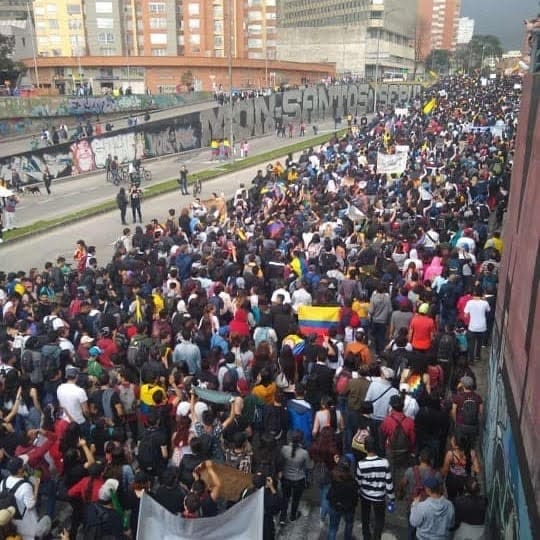Tens of thousands of Colombians have taken to the streets across the country today, simmering with anger over the government’s moves to cut wages and pensions, restrict the right to protest, hike energy prices and reward corporations with tax cuts, among other proposed measures. The president responded by closing the borders, raiding the homes of activists and mobilizing riot police.
The nationwide strike, organized and led by unions, students, Afro-Colombians and indigenous Colombians, has tapped into deep discontent with the government of Ivan Duque. “Even the middle class is fed up with domination by the superwealthy and political class,” reported Courthouse News Service. “Colombian human rights defenders, artists, LGBT groups, teachers, health workers, air traffic controllers and others joined the call for a national day of peaceful protest.”
Income inequality in Colombia is high, in both regional and global terms, as are both unemployment and the poverty rate.
Among protester grievances are proposals that would: reduce salaries for young people to 75 percent of the minimum wage; privatize the pension system and base pension payments below the minimum wage; cut taxes for large companies while raising them for the middle class; and increase the cost of electricity by 35 percent, according the Colombian union federation CUT, a longstanding Solidarity Center partner. In addition, they are decrying the government’s inaction on the murders of community leaders and activists and corruption draining the public coffers.
In today’s strike, Colombia joins a host of countries—from Lebanon to Haiti—that have seen mass protests over bread-and-butter issues like wages, jobs and corruption.

